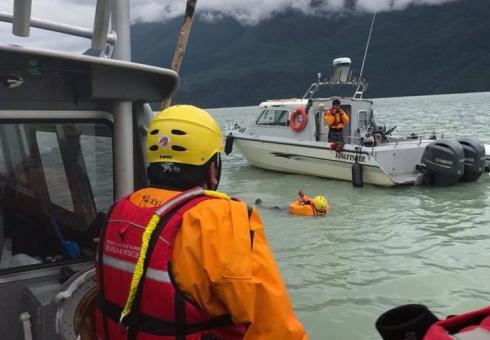Emergency procedures must be easy to understand and put into practice. Provide opportunities to practice safety drills and run through scenarios in the field. Emergency response protocols often involve a variety of people so it is important that everyone knows their role and the actions they need to take in the event of an incident. See the Story ‘Scenarios Help Indigenous Guardians Prepare for Eventualities and Reduce Risks'
Ensure all members of your crew have the necessary training to operate equipment and to respond in the event of an emergency. Competency training and assessment should be a standard part of pre-season preparations. Staff must continuously refresh and upgrade their skills and knowledge so they are prepared and ready in an emergency situation. See the Story 'Saving Money While Reducing Guardian Program Risks’.
Everyone should feel comfortable reporting unsafe incidents or close calls that occur. This way your program can learn from mistakes, address unsafe behaviours that may put the entire crew at risk, and adjust components of the safety policies to avoid future incidents. Staff must understand the corrective and disciplinary actions they face if they engage in unacceptable behaviour on the job.

